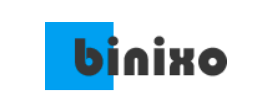Legal Regulations and Consumer Protections for Online Loans in the Philippines
Online loans have become an increasingly popular choice for many Filipinos due to their convenience and accessibility. However, it’s important to be aware of the legal regulations and consumer protections that are in place to ensure that online lending practices are fair and transparent. In this article, we will explore the laws governing online loans in the Philippines and the measures put in place to protect consumers.
The rise of technology and the internet has allowed for the growth of the financial technology (fintech) industry in the Philippines. The fintech industry is changing the way people access and use financial services, particularly when it comes to loans. Online lending platforms have emerged as a popular alternative to traditional banks and lenders, offering fast and convenient loan application processes and competitive interest rates.

Loan type
Short termFor a period of
728 daysRate ()
365.00% / yearLoan amount
25000 ₱Approval in
5 minutesFirst loan free
no
Loan type
Short termFor a period of
180 daysRate ()
0.00% / monthLoan amount
20000 ₱Approval in
5 minutesFirst loan free
no
Loan type
Short termFor a period of
180 daysRate ()
0.00% / monthLoan amount
25000 ₱Approval in
5 minutesFirst loan free
no
Loan type
Short termFor a period of
180 daysRate ()
0.00% / dayLoan amount
25000 ₱Approval in
15 minutesFirst loan free
no
Loan type
Short termFor a period of
180 daysRate ()
0.00% / dayLoan amount
25000 ₱Approval in
15 minutesFirst loan free
noThe Legal Framework for Online Loans in the Philippines
The main law governing online loans in the Philippines is the Truth in Lending Act (TLA). The TLA requires lenders to provide clear and concise information about the terms and conditions of their loans. This includes the disclosure of the Annual Percentage Rate (APR) to prevent hidden charges and fees that could burden borrowers. The APR is the total cost of the loan expressed as a yearly percentage of the loan amount. It includes interest rates, fees, and other charges.
The TLA also requires lenders to disclose the total amount to be paid by the borrower, including all fees and charges. This information must be provided in writing and in a language that the borrower understands. The TLA also mandates the use of plain language in loan documents, making it easier for borrowers to understand the terms and conditions of the loan.
Another important law is the Consumer Act of the Philippines, which establishes the rights of consumers and prohibits unfair trade practices. This includes the right to full disclosure of the terms and conditions of a loan, the right to reject or cancel a loan agreement within a certain period, and the right to receive a written copy of the loan agreement. The Consumer Act also prohibits the use of false or misleading representations in loan advertisements.
Consumer Protections for Online Loans in the Philippines
To further protect consumers, the Bangko Sentral ng Pilipinas (BSP) has issued guidelines for online lending platforms. These guidelines require online lenders to register with the BSP and comply with certain rules, such as limiting the interest rates they can charge and disclosing all fees and charges to borrowers.
The BSP also requires online lenders to implement measures to ensure the security and privacy of their clients’ personal and financial information. This includes using encryption and other security measures to protect against hacking and data breaches.
Online lenders must also comply with the Data Privacy Act of 2012, which regulates the processing of personal information by private and public sectors. The act requires online lenders to obtain the borrower’s consent before collecting, using, or disclosing their personal information. It also mandates the implementation of security measures to protect personal information from unauthorized access, disclosure, and destruction.
Red Flags to Watch Out for When Taking Out Online Loans
While there are legal regulations and consumer protections in place, it’s still important to be vigilant when taking out online loans. Here are some red flags to watch out for:
- High-interest rates – Online lenders may charge higher interest rates than traditional lenders. Be sure to compare rates from different lenders before making a decision.
- Hidden fees and charges – Some online lenders may not disclose all fees and charges upfront. Read the loan agreement carefully before signing.
- Unsolicited loan offers – Be wary of unsolicited loan offers, especially those that require an upfront payment or deposit.
- Limited disclosure of terms and conditions – Online lenders must provide clear and concise information about the terms and conditions of the loan. If they are hesitant or refuse to disclose important details, consider it a red flag.
- No physical address or contact information – Reputable online lenders should have a physical address and contact information readily available on their website. If this information is not provided, it could be a sign of a scam.
What to Do If You Encounter Problems with an Online Loan
If you encounter problems with an online loan, there are steps you can take to protect your rights as a borrower. First, try to resolve the issue directly with the lender. Contact them and explain the problem, and see if you can come to a resolution.
If the issue remains unresolved, you can file a complaint with the BSP or the Securities and Exchange Commission (SEC). The BSP and SEC have the authority to investigate and take action against online lenders that violate the law or engage in unfair practices.
You can also seek the assistance of a consumer advocacy group or a legal professional if necessary. They can help you understand your rights as a borrower and provide guidance on how to handle the situation.
Conclusion
Online loans offer a convenient and accessible alternative to traditional banking and lending services. However, it’s important to be aware of the legal regulations and consumer protections that are in place to ensure that online lending practices are fair and transparent.
The Truth in Lending Act and the Consumer Act of the Philippines establish important rights and protections for consumers. The BSP and SEC have also issued guidelines to regulate online lending platforms and protect borrowers. By being vigilant and informed, you can make informed decisions when it comes to taking out online loans and avoid falling victim to scams or unfair practices.
Remember to always compare rates and terms from different lenders, read loan agreements carefully, and report any issues or red flags to the proper authorities. With these measures in place, Filipinos can continue to enjoy the benefits of online lending while also being protected from fraudulent or predatory practices.
7+ Fast Loans Online in the Philippines - First 0% loan in 15 minutes

Loan type
Short termFor a period of
180 daysRate ()
0.00% / monthLoan amount
25000 ₱Approval in
5 minutesFirst loan free
no
Loan type
Short termFor a period of
728 daysRate ()
365.00% / yearLoan amount
25000 ₱Approval in
5 minutesFirst loan free
no
Loan type
Short termFor a period of
180 daysRate ()
0.00% / monthLoan amount
20000 ₱Approval in
5 minutesFirst loan free
no
Loan type
Short termFor a period of
180 daysRate ()
0.00% / monthLoan amount
25000 ₱Approval in
5 minutesFirst loan free
no
Loan type
Short termFor a period of
120 daysRate ()
0.00% / monthLoan amount
25000 ₱Approval in
5 minutesFirst loan free
no
Loan type
Short termFor a period of
180 daysRate ()
0.00% / dayLoan amount
25000 ₱Approval in
15 minutesFirst loan free
no
Loan type
Short termFor a period of
180 daysRate ()
0.00% / dayLoan amount
25000 ₱Approval in
15 minutesFirst loan free
no